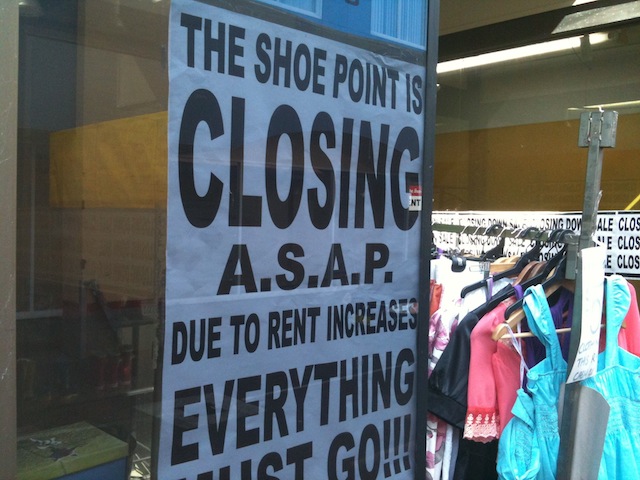One of the sad facts of business is that ventures go broke, and when they do there’s a trail of former customers, suppliers and employees that end up out of pocket.
The recent appointment of administrators to the recently listed Australian electronics retailer Dick Smith Holdings leaving thousands of gift card holder – including the writer of this blog – out of pocket is a good example of this.
Over twelve years of running a service business having customers go bust was a regular thing. Luckily this wasn’t frequent as once the assets had been liquidated and divided among creditors one was lucky to get five cents for every dollar owed.
Early warning signs
When a customer did go broke it was rarely unexpected. With long standing clients the payment times would blow out and often a business going bust showed the signs of poor maintenance, declining stock levels and distracted management long before the money ran out.
The other notable thing was the failing company’s staff were often on your side. At one company, a whisky broker that went under owing millions to creditors who’d effectively bought ‘time share’ in liquor, the receptionist insisted in paying for some of the work we’d done out of the petty cash.
Five years later the remaining outstanding invoices were settled and, as expected, we received almost nothing apart from the entertainment of reading the administrator’s reports detailing the struggles of angry creditors trying to get their drinking money back in the face of what had almost certainly been a scam.
Ethical proprietors
Most business owners that go broke aren’t crooks however, most are honest people who made bad decisions or were just plain unlucky. Often these people suffer far more than the creditors.
One pleasant experience we had with a failed customer was a dance studio on Sydney’s Lower North Shore. The business went broke, the proprietor fled to her native New Zealand and I resigned myself to never seeing the outstanding thousand dollars.
Two years later the formal liquidation proceedings had finished and unsurprisingly we received none of the monies owing. A few months after a cheque from the business owner arrived for the entire outstanding amount with a note apologising.
A tough life
While the former dance studio owner probably broke the rules in paying back the debts outside the official channels, she illustrated most failed business people are good people who were caught out by their own mistakes or being on the wrong side of lady luck.
Business failure for those running startups or smaller enterprises often comes at a high personal financial, mental and relationship cost so it’s not surprising those sinking trying to hold on later than they should and then take personal responsibilty for the damages they cause.
Sadly the same doesn’t hold true at the corporate level and in the case of Dick Smith Holdings the executives, the institutional shareholders frittering aways investors’ money, the private equity swashbucklers and the staid corporate managers responsible for the firm’s failure probably won’t see a hiccup to their stellar careers.
The moral for anyone in business remains never to be too exposed to any one creditor. Regardless of how well a client’s management means, when things go bad it’s unlikely you’ll see most of the money you’re owed.

Leave a Reply